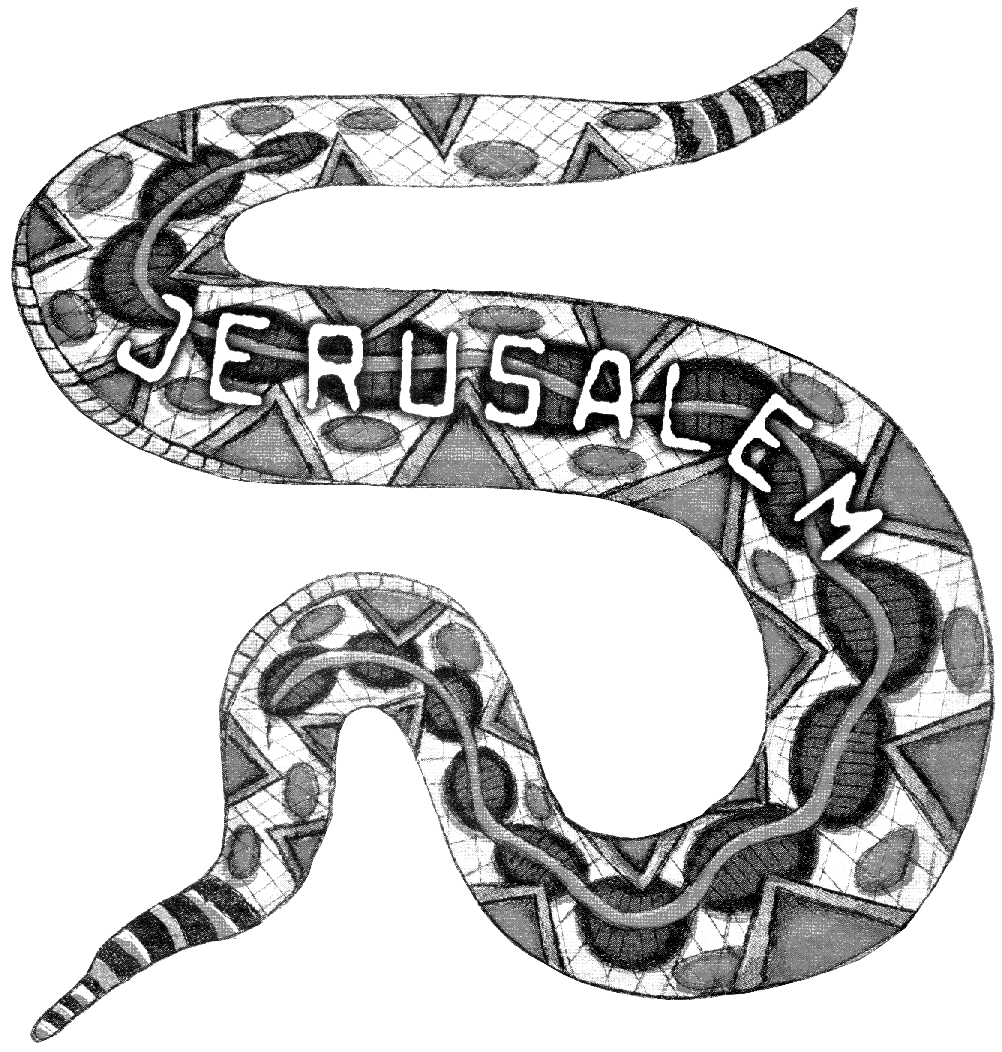



By Odie Lindsey
In a sense, Steve Earle’s latest album Jerusalem
is frightening. In fact, aspects of it are flat out fucking scary. When addressing
the work of this particular singer/songwriter, redneck-intellectual, Marxist-leaning,
perpetual Grammy nominee, relentless anti-death penalty activist, 9th grade
dropout, published author and playwright, actor, Emma Goldman- and Woody Guthrie-touting,
New York Times and Nightline and No Depression and Anytown News U.S.A. cause
célèbre’ing, former heroin and crack addicted arts patron
... scary is quite a feat.
While Jerusalem may not be Earle’s defining effort, for the most part
it successfully flouts the malleable, roots-rock-country walls which Earle
has consistently shoved up against. Controversy or no controversy, “John
Walker’s Blues” is the peak here, blending his emotive drawl with
maudlin rural instrumentation that segues into a sampled Islamic prayer recitation.
(Unfortunately, though “Ashes to Ashes” is quite engaging, in
this case the employment of a sample is awkward.)
“Conspiracy Theory” is a take on UK-based intellectual dance,
or “University Band” music, but doesn’t feel fully realized.
“The Truth” is a darkly constructed portrait of the condemned,
whereas the electric piano groove of “Go Amanda” rollicks in a
Faces-esque manner. With Earle,  there
are always poignant references to ambling highway miles and songwriting, in
this case via “What’s a Simple Man to Do” and “The
Kind.”
there
are always poignant references to ambling highway miles and songwriting, in
this case via “What’s a Simple Man to Do” and “The
Kind.”
Despite outstanding collaborations with artists like Lucinda Williams and
Iris DeMent on previous releases, the production on “I Remember You”
with Emmylou Harris seems forced. (Note to God: please do not strike me down.
This is in no way critical of Emmylou’s voice.) Rounding off the collection
is the recording’s namesake, which provides a heartfelt dose of optimism,
given the prevailing subject matter. Of non-musical interest is Jerusalem’s
cover, which is the fifth to feature work by Chicago artist Tony Fitzpatrick.
Given the fact that it’s a solid release, but by no means Earle’s
best, the uproar over Jerusalem seems particularly strange. But beyond the
Ozymandius-evoking context of “Ashes to Ashes,” or activist questioning
lyrics of “Conspiracy Theory,” it’s actually the off-the-record
reaction which is so troubling. The song “America v. 6.0 (The Best That
We Can Do)” was pulled from the John Q movie soundtrack because the
studio didn’t want to appear unpatriotic. Eclipsing this, it’s
shocking to uncover the amount of times the lyrics to “John Walker’s
Blues” have been crucified by the mainstream (i.e., the New York Post’s
trumpeting “Twisted Ballad Honors Tali-Rat”) — despite Earle’s
overt opposition to ANY fundamentalism, let alone supporting the song’s
subject, John Walker Lindh. Lines like “I’m just an American boy/raised
on MTV/And I’ve seen all those kids in the soda pop ads/But none of
them look like me” are meant to provoke opinion. But response to “Jerusalem”
has often gone darkly beyond viewpoint. So much so that even if you’re
not aware that “John Walker’s Blues” is a real-life echo
of countless Steve Earle songs before it, all of which try to find an aspect
of humanity in those the world has either forgotten or damned; well, shit,
you can’t help but wonder: this is America, isn’t it? Can’t
a person speak his mind?
All right, all right. Maybe I’m still fuming because I’m a Desert
Storm vet who was assailed by the words “fucking terrorist” when
attending an anti-war protest recently. But, onto the practical. ...
All in all, like it or not, response to Jerusalem begs an important question:
In the throes of “terror,” “patriotism,” “civil
liberties,” and the state of the real world, how hard can it be to express
your ideas? When a largely unknown Yankees fan from Schertz, Texas, is catching
this much heat for asking, well, things feel a little scary.